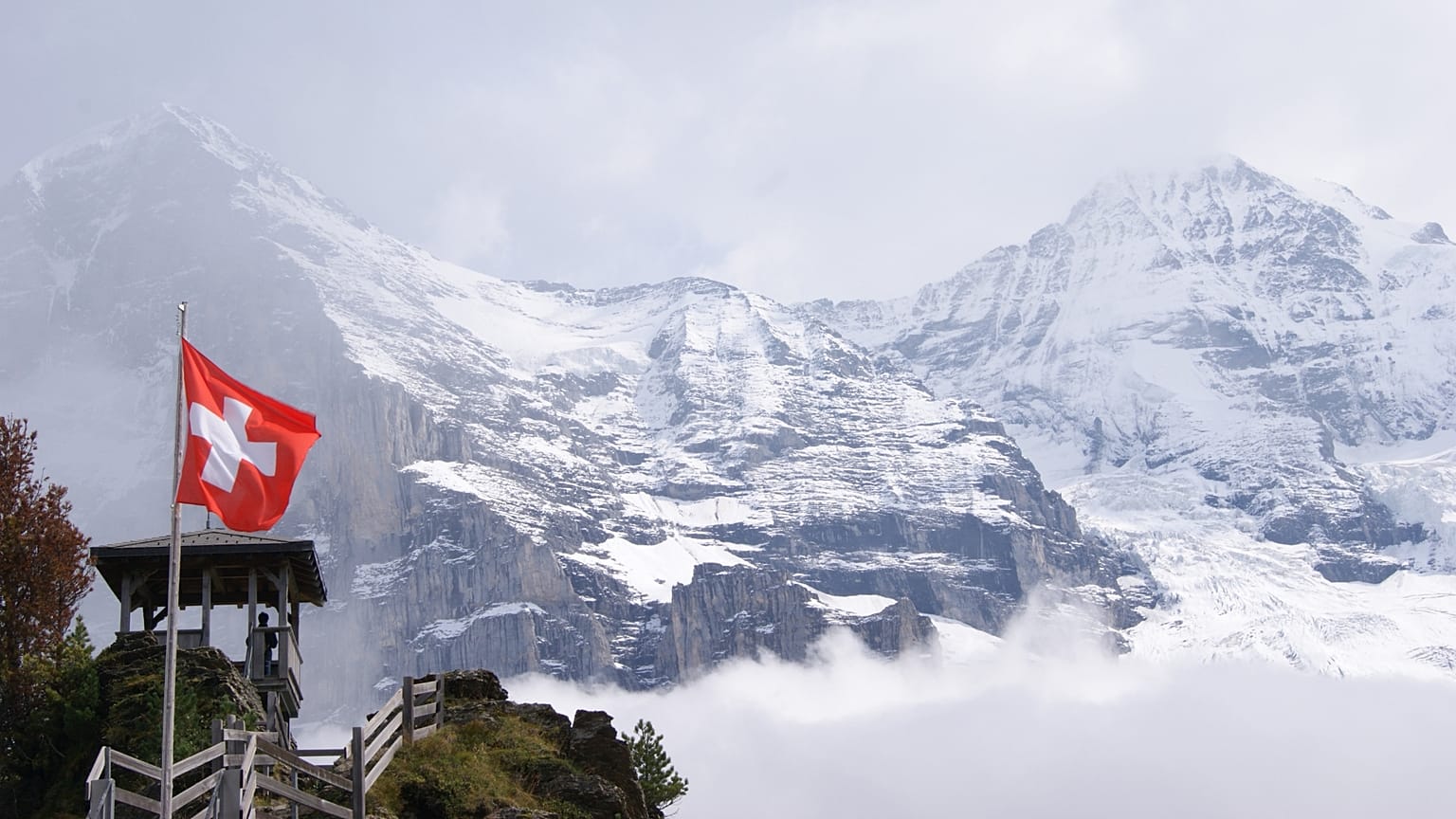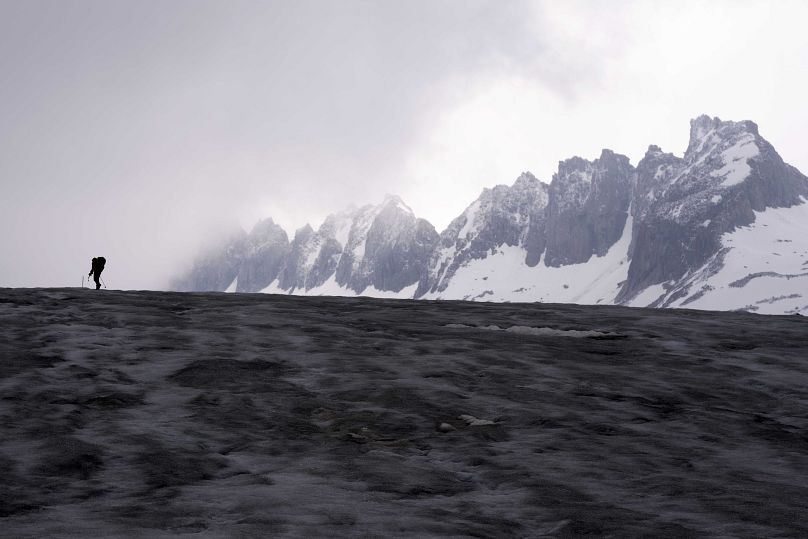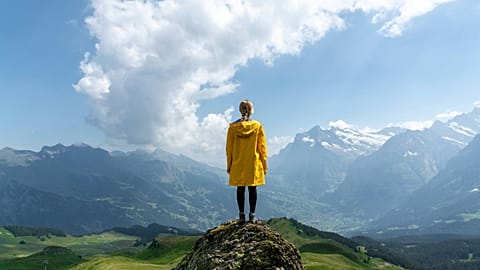Climate change was one of the issues at the top of the list for discussion during the recent World Economic Forum meeting in Davos
January saw scientists confirm that 2023 was the hottest year on record with high temperatures putting 1.5°C global warming limits at risk.
 ADVERTISEMENT
ADVERTISEMENT
 ADVERTISEMENT
ADVERTISEMENT
Within Europe, Switzerland is particularly vulnerable to climate change. Over the last decade, temperatures have on average been 2.5°C warmer than they were in pre-industrial times.
Its glaciers have experienced record melting with 10 per cent lost in the last two years. Weather extremes have swung from heavy downpours to lingering drought.
Climate change was one of the issues at the top of the list for discussion during the recent World Economic Forum meeting in Davos. So this month we’re taking a look at the green credentials of the country where the global get-together was held.
Swiss referendums: A vote for climate?
Petitioning is one of Switzerland’s oldest democratic traditions and plays a unique role in its climate action.
Popular initiatives for citizens to create a new law require 100,000 valid signatures to be put to a vote. Proposals to approve or reject existing laws require 50,000.
There are also mandatory referendums, which are required to revise the constitution, join an international organisation or introduce emergency federal legislation for more than a year.
A referendum in June last year saw Swiss voters back a new law that seeks to accelerate the country’s shift from fossil fuels to renewable energy, reaching net zero emissions by 2050. In total, 51.9 per cent of voters said yes to the climate and innovation legislation enshrining the net-zero target in law.
Some aren’t so successful like a proposal from animal rights activists in 2022 to ban animal testing which was overwhelmingly rejected.
These referendums take a range of different forms. The Young Socialists, the youth wing of the Social Democrats party, has just collected enough signatures for one on introducing a hefty wealth tax to help fund climate protection measures.
Their proposal would see a 50 per cent tax on inheritance over 50 million francs (€53.3m) with the funds it generates going exclusively to efforts to combat global warming.
“Those who for decades have been jeopardising our natural resources for their own profit should pay the price,” their website reads.
The Young Socialists submit quite a few of these petitions every year - often based on the concerns of those too young to participate in politics in other ways.
Is Switzerland phasing out nuclear and phasing in solar?
Switzerland is one of the countries with the lowest carbon intensity when it comes to electricity, according to the International Energy Agency. Ahead of COP28 in Dubai last year, Felix Wertli, Switzerland’s climate ambassador, said finding strategies for renewable energies and energy efficiency are key to the country’s climate plan.
Around three-quarters of the energy it consumes comes from renewables - mainly hydropower.
But again, referendums can be a double-edged sword. In 2017, the Swiss voted to gradually phase out nuclear power and since then the country’s energy sector has been in transition. Heavy reliance on hydropower means when water supplies are low in the winter, the country has to import power to cover demand.
Switzerland’s energy sources, therefore, are often dependent on its neighbours and frequently include fossil fuels in the mix.
To cover the gap from phasing out nuclear power, more investment in renewables is needed - especially those like wind that offer more generation during winter - if Switzerland is to meet its emissions goals.
Swiss federal authorities have set a target of 2 billion GWh in new solar energy under legislation promoting the development of solar power. And they’ve set aside more than 3 billion Swiss francs (about €3.14 billion) to help wean companies and homeowners off fossil fuels.
A giant ‘water battery’ is helping stabilise supplies
Building up its renewable resources has also meant developing innovative ways to help keep supplies constant.
In 2022, a giant ‘water battery’ in a subterranean cave 600 metres underground in the canton of Valais became operational. It can store the equivalent of 400,000 electric car batteries worth of energy using two large pools of water located at different heights.
Excess electricity is stored by pumping water from the lower pool up to the higher pool, effectively ‘charging’ the battery.
When electricity is needed, the direction of the water is reversed. The flow of water rotates a turbine which generates hydroelectric power.
With the ability to store and generate vast quantities of energy, the battery will play an important role in stabilising power supplies in Switzerland and Europe. It reduces the chance of the electricity grid becoming overloaded during periods of high demand such as heatwaves.
What is Euronews Green's country of the month?
Each month we highlight a European country that is advocating for climate, nature and the environment. Our Green Country of the Month can stand out for anything from eco-innovations to policy change.
Here are some of the countries that have previously been in the spotlight: Sweden, Albania, Denmark, Iceland, Austria, Portugal, Spain, Estonia and Wales.
If you’re feeling encouraged by a European government-led initiative in February - please do reach out to us on social media, either on Instagram or Twitter.


















